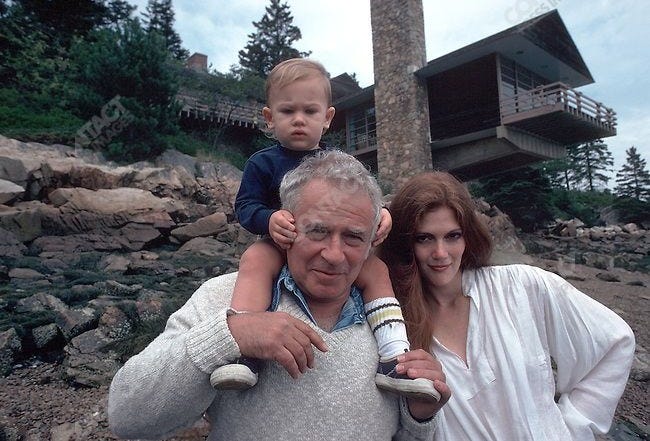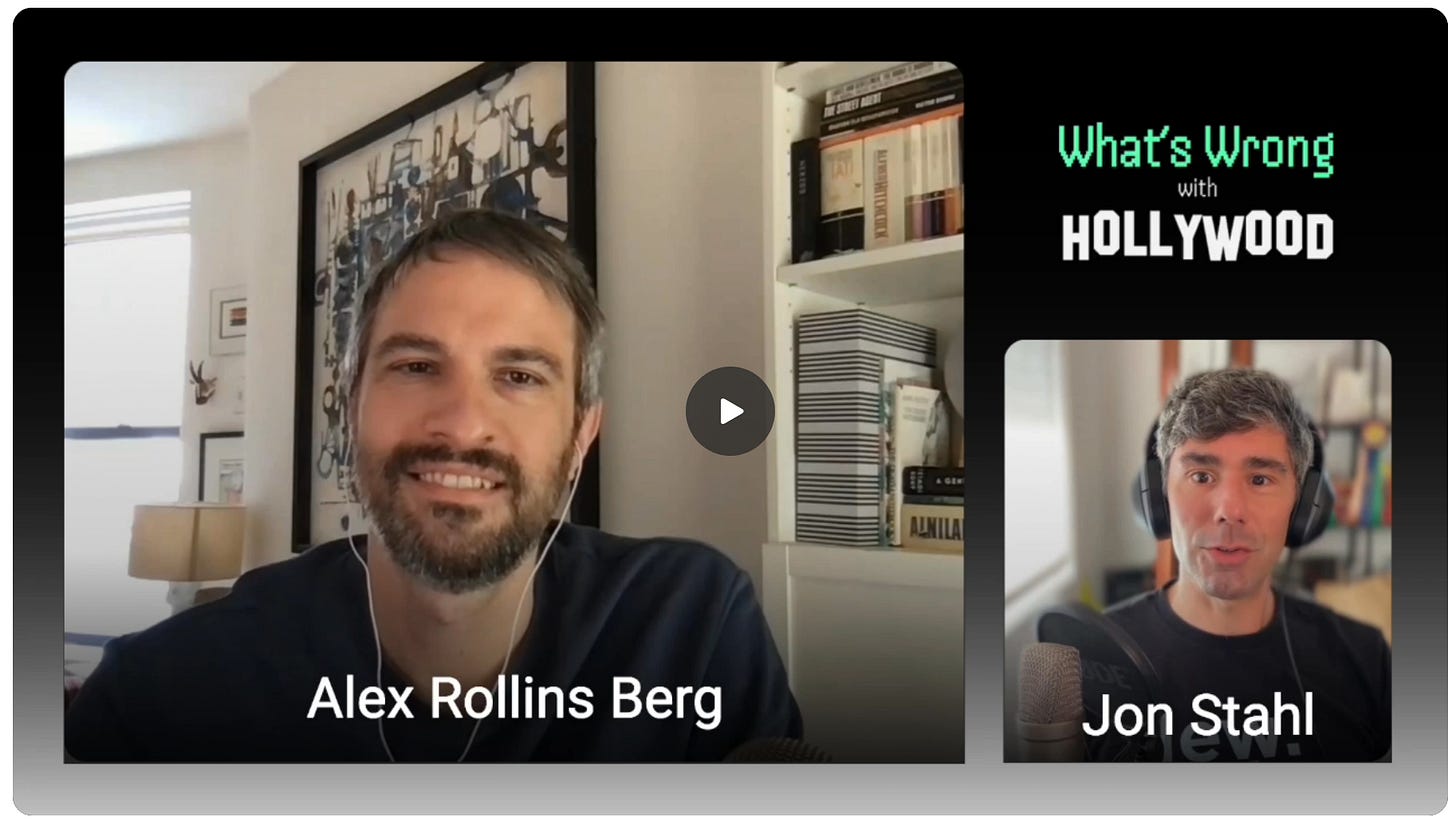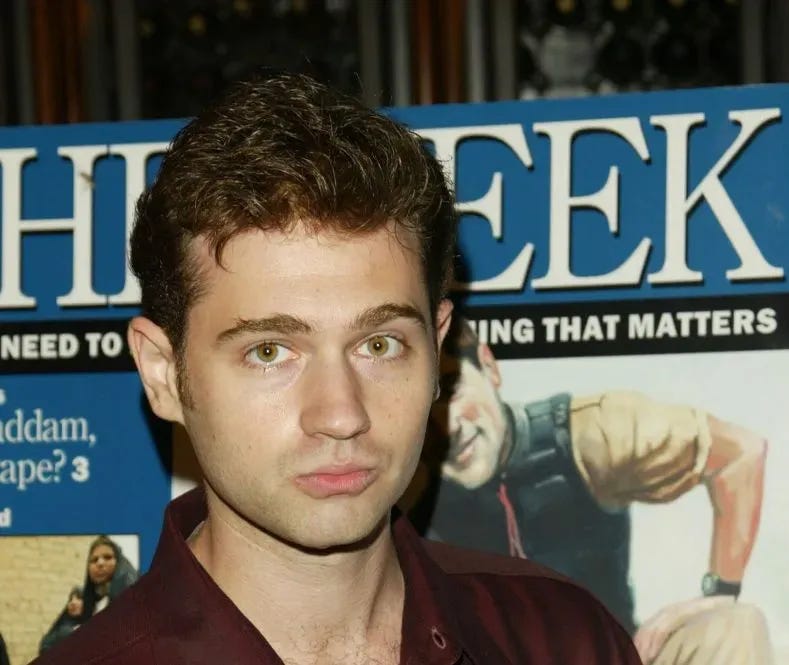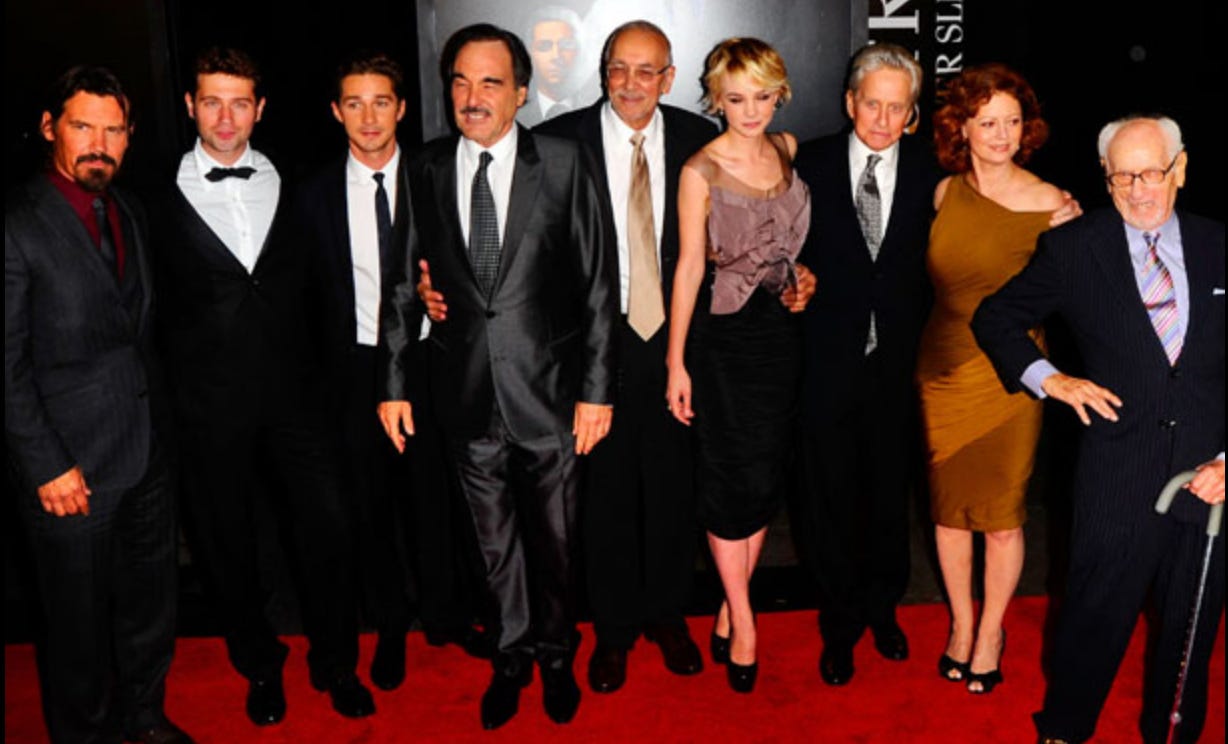The Son Also Rises: John Buffalo Mailer on Defending Cinema in the Age of Slop
PLUS: Working with Oliver Stone and Mike Nichols, navigating the "nepo baby" label, and growing up in the shadow of a literary street fighter
“Rotten Tomatoes, for my money, is terrible for culture. I think it's a brilliant business model. Whoever started Rotten Tomatoes was very smart in terms of achieving what they wanted to achieve. But the algorithm, through which they make or kill a movie, is off.
It doesn't get into any nuance. It's almost like it's designed to obliterate nuance.”
- John Buffalo Mailer
This is the 50th edition of Underexposed, or so my Substack dashboard claims. Forty-odd Friday mornings, plus a few rogue dispatches - always nattering on about overlooked classics and the joys of moviegoing. I can’t quite believe several thousand of you read this every week. It’s humbling. And, let’s be honest, a little suspicious. Don’t you people have jobs or families or something?
After so many consecutive weeks, the sound of one’s own voice starts to get, well, annoying. So this week, I’m letting someone else do most of the talking.

Like his father, John Buffalo Mailer has ink in his veins and a taste for the scrap. He’s a screenwriter, actor, producer, and playwright who has worked with Oliver Stone and Mike Nichols, written for New York Magazine and Playboy, and scripted films like Blind, which landed on the Black List before being made in 2016 with Alec Baldwin and Demi Moore.
Buffalo (yes, that’s what most people call him) has also appeared on the big screen, most notably opposite Shia LaBeouf in Wall Street: Money Never Sleeps. The theater company he co-founded after college, Back House Productions, developed Lin-Manuel Miranda’s Tony Award-winning In The Heights. Most recently, he served as an executive producer for the 2024 documentary How to Come Alive with Norman Mailer.
This past year, I’ve had the pleasure of getting to know Buffalo over several stimulating conversations, many of them lubricated by booze and, more than once, meatballs. His ideas resonate with many of the themes we toss around here, so naturally, I invited him over for a chat. We covered his stellar creative work, the state of culture, and what it’s like to carry a surname that still lingers like a gunshot in the halls of American letters.
You can read excerpts from the conversation below, or better yet, watch the full conversation here on YouTube:
Watch Blind, written by John Buffalo Mailer, here.
Rent or buy How to Come Alive with Norman Mailer here.
Underexposed is an ad-free weekly film publication powered by readers. Support the future of cinema culture - because our tech lords sure as hell won’t. Go premium for bonus articles, videos, and more.
News Reel
“Charisma Rules the World” Molly Worthen contends this week in the New York Times: “A lot of us are searching for a storyteller: someone or something to tell us what our lives mean. Compared with the sense of purpose and identity that past generations found in sturdy communities, now it’s very difficult to tell the story of who you are and what you’re doing.”
The founder of the Black List has entered the Stack. Welcome to the fray,
. Some years ago, I got an email from Franklin Leonard informing me that I had won a screenwriting fellowship from the Black List and Harvard’s Hasty Pudding Institute - a joyous moment. These days, joyous moments are in short supply in this biz, and Franklin's not having it: “If we don't change things up, we'll keep making bad bets. We'll keep leaving money on the table. And we'll keep wondering why Hollywood isn't working while it circles the drain.”For those who just can’t get enough of me, you’re in luck - I’m a guest on Jon Stahl’s fun new podcast, What’s Wrong with Hollywood. We discuss Hollywood’s “biodiversity crisis,” the art of indie outreach, and a new model for breaking through. Everyone subscribe to Jon immediately!

Watch it here
Excerpts from a Conversation with John Buffalo Mailer
Alex Rollins Berg: Having observed so much wonderful culture at close range, as you have, I wonder if you could comment on the way that things have changed since we were kids, into this era now where a lot of people are feeling disenchanted with traditional narratives. I think we've lost a little bit of our sophistication as audiences for these stories, and I wonder if you could comment on where you think it's all going.
John Buffalo Mailer: I think we're facing challenges today that we've never faced before. Attention span has been completely obliterated and on top of that, on one's preferred social media feed, you are the star, right? So now you're telling teenagers that they should take a break from being the star of their own movie, spend money and take two hours away from their phone to watch yours. It's odd how tough a sell it is. I do think that probably it's a result of a lack of exposure to long form storytelling because, as I've said before - a great movie will help make sense of your lives. It will help with the choices you make. It's cathartic. It's all of these things.
“There's a certain narcissism to the culture today that is not healthy. I really I don't care what someone had for lunch. I don't. I don't care. They could be one of my heroes, and I still don't care unless I'm having that lunch with them.”
But at the same time, what I'm seeing today, and particularly with the younger generation, is a rebellion against this. They feel like they've been cheated out of something. They know that there's a certain meaninglessness to all the pictures that they take. We're having so many images crammed into our heads at all times, every day, that the meaning of the images starting to go away.
But film is a language, right, as Coppola has elucidated very eloquently, and the choices that we make of this image will be followed by this image, will be followed by this image or thought out, and require you to actually pay attention to what you're seeing to get the value out of it.
I will say that, since getting to know Olivia Rutigliano and yourself, I am heartened and encouraged and excited because you wonderful people cultivate communities of like-minded souls that actually do want to get away from themselves for a moment and take time to watch a movie or a series or whatever it is, and really enjoy it and pick it apart. So I think that the pros of the time we're living in is, you know, just as like, bad people can find like minded individuals and connect and feel a sense of camaraderie and group. So can cinephiles, you know, and there's a way to do that.
The other challenge that we're facing, though, with where the industry is going at this moment… movies being developed and considered for production are going through that kind of data mine of robots telling you that if you change this scene or add this character or do that, then you're going to get this demographic. And you can do that, but that completely takes the magic out of it, that that completely takes a studio head reading a script from The Blacklist and saying, this is going to be a great movie, this is going to be something, and believing in it - like the days of Bob Evans and that kind of notion of a studio head who actually is a cinephile and really cares - are gone.
And I also think that, at best if you assume that this data is accurate (which I don't, because they're pulling it from all sorts of crazy places) but assuming it is accurate, it's what people wanted two years ago. It's not what people want next year. And that's the kind of time frame you got to be looking at when you're making a movie. So there's a lot of challenges. At the same time, just like booze, we will always need entertainment because in times of stress, those are the two industries that go up because we have to escape somehow.
So I'm optimistic about where it's going. And I think that the millennials really were like the test subject that got hit the hardest by all of us. And generations that are coming are just more savvy about what they put out and be how they spend their time, because that's really what we got, right?
Alex Rollins Berg: Yeah. And it kind of brings it back to your dad in a way, because he was such an advocate for that kind of existential bravery, it seems to me. How do we carry that spirit on? How do we reintroduce risk?
John Buffalo Mailer: I mean, it's going to require very bold, brave souls who are willing to risk being canceled to do so. Either cancelled from the left or cancelled from the right, we've got we got cancel culture on both sides. And I guess it's really an existential question of do enough people feel like not every moment of life is supposed to be comfortable. Do we collectively still know that we need that? Because there is no sweet without the sour. And if one is taught or thinks that they can go through life without anyone ever slapping them in the face, whether it be metaphorically or physically, that's not going to be a fulfilling life. And I think that there is a certain dulling, as my dad would say, a dulling of the senses that has gone on, a numbing of passion.
That’s all for this week’s free edition. Beyond the paywall, VIPs can enjoy part two of the conversation, plus a bonus video of John Buffalo Mailer’s Underexposed Guest Pick.
Keep reading with a 7-day free trial
Subscribe to Underexposed to keep reading this post and get 7 days of free access to the full post archives.




